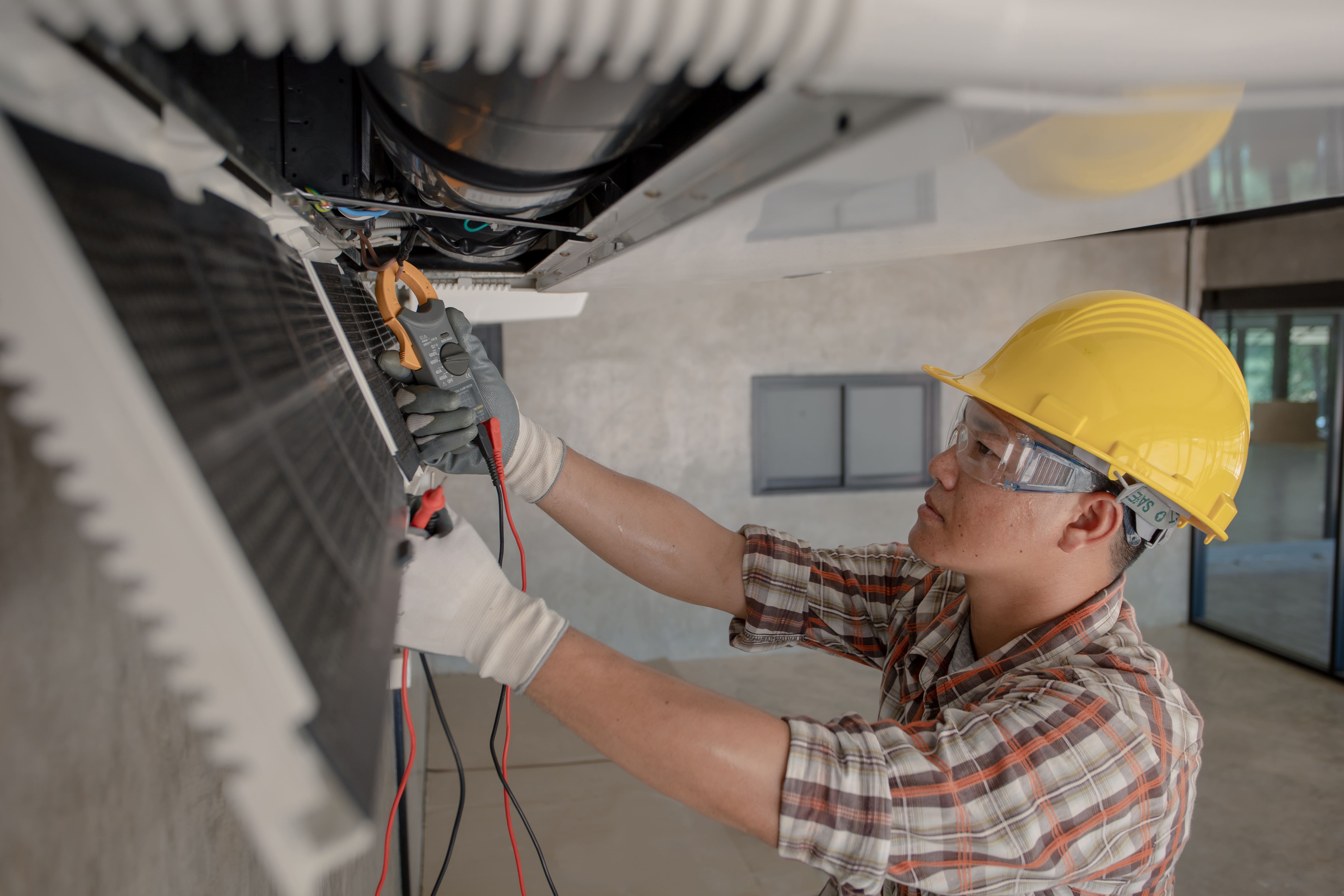This White Paper was submitted to FMLink by Bryant Surety Bonds, Inc.
January 25, 2023 — Becoming a heating, ventilation, air conditioning, and refrigerant (HVAC-R) contractor can be lucrative. However, you must understand the training, licensing and bonding requirements so that you can legally operate your business. Since the work of an HVAC-R technician involves handling refrigerants, there are additional requirements you must meet under the guidelines of the U.S. Environmental Protection Agency (EPA). Here is what you need to know about HVAC-R licensing and bonding.
What is the difference between HVAC and HVAC-R?
HVAC technicians are professionals who install, maintain, and repair heating, ventilation, and air conditioning systems. People who are HVAC-R technicians also handle refrigeration systems such as what you might find in commercial refrigeration walk-ins and others. When technicians install and repair refrigeration systems, they must ensure that they comply with EPA regulations on how refrigerants should be conserved, recovered, and recycled. According to regulations under the Clean Air Act, HVAC technicians whose work involves handling refrigerants must obtain a section 608 certification from the EPA.
Types of EPA certifications
The EPA has the following four types of certifications for HVAC technicians who will handle refrigerants:
- Type 1 — For those who will service small refrigerant-containing appliances
- Type 2 — For those who will service and/or dispose of high-pressure appliances
- Type 3 — For those who will service or dispose of low-pressure appliances
- Type 4 — For those who will work on any type of refrigerant-containing appliance (universal certification)
Each of these varying types of certifications has training and exam requirements that you must complete before you can obtain them.
State licensing requirements
Most states require HVAC technicians to obtain licenses, but the requirements can vary from state to state. While a few states do not require HVAC contractors to be licensed, municipal or county governments within them might.
Some general requirements apply to HVAC licensing in all states that require licenses:
- Be at least 18 years old
- Hold a high school diploma or GED
- Complete an apprenticeship program or trade school of a specific length
- Have no felony convictions
Complete the training and education requirements in your state
Some states distinguish between HVAC contractors and HVAC technicians. In those states, technicians must work under the supervision of HVAC contractors before they can become independent. Many require HVAC contractors to pass a licensing exam and obtain HVAC bonds as a licensing condition.
Once you meet the training and education requirements in your state and want to open your own HVAC business, you will typically need to obtain an HVAC contractor license. To get a license, you will need to register with the Secretary of State in the state in which you want to operate, establish a permanent business location, get the different types of insurance you will need, and post an HVAC bond.
Obtain your Federal Employer Identification Number and state tax ID
You’ll need to apply for a Federal Employer Identification Number (FEIN) and state tax ID. You can apply for a FEIN on the Internal Revenue Service (IRS) website.
Choose your entity structure and register your business
You will next need to choose the business structure for your company and register it with the Secretary of State. There are several different structures from which you can choose that offer varying levels of liability protection. Many businesses choose to initially start out as limited liability companies (LLCs) because the structure is relatively simple to set up and provides personal liability protection for the owners.
Open a business bank account
You should open a separate business bank account for your HVAC business. Doing so can help you keep your business and personal funds separate and prevent potential problems when it’s time to file your taxes. The bank will need your FEIN and a copy of your business registration to open your account.
Purchase an HVAC bond
To get an HVAC bond, you can apply through a surety company’s website. Many offer online applications. The surety company will typically want additional information about you and your business, so you should gather the following information in advance:
- Income tax returns
- Business organizational chart
- Business and personal assets
- Letter from your bank
- References from professionals with whom you’ve done business in the past
Before your bond application will be approved, it will be sent through an underwriting process. The underwriters will review the information about your business to make a risk determination. If you have great credit, a good reputation, a clean criminal record, and strong financials, the bond company will likely find that you represent little risk and prepare a low bond quote for you. If you have a low credit score and other issues, your bond application could be denied.
It’s important to note that you won’t have to pay the full bond amount that you need to post. For example, if your state requires you to post a $20,000 HVAC bond, you won’t have to pay $20,000 to get bonded. Instead, your bond premium quote could be as little as 1% of the total amount or $200 if you have great credit. If you have poor credit, you might expect to pay a bond premium of 10% or more.
Once you are approved for a bond, the surety company will give you a bond form showing that you have met your bonding requirements so that you can provide it to the state.
Obtain the required insurance
Your state or local licensing authority will likely require you to have commercial general liability insurance and workers’ compensation insurance. Commercial general liability insurance will protect your business against liability in case of a covered loss. Workers’ compensation insurance is required by most states to protect workers if they are injured on the job.
Apply for your HVAC license
Once you have met all of the licensing requirements in your state, have obtained your EPA certification, and have purchased your bond, you can then submit your application for an HVAC license. Make sure to include documentation that you have met all of the state’s requirements and submit the fee.
Once you are bonded and licensed as an HVAC-R contractor, you can then legally operate your business in the state in which you are licensed. Make sure to keep current with the laws and regulations that govern your business and comply with them. Doing so can help you avoid bond claims and other problems that could harm your business.

